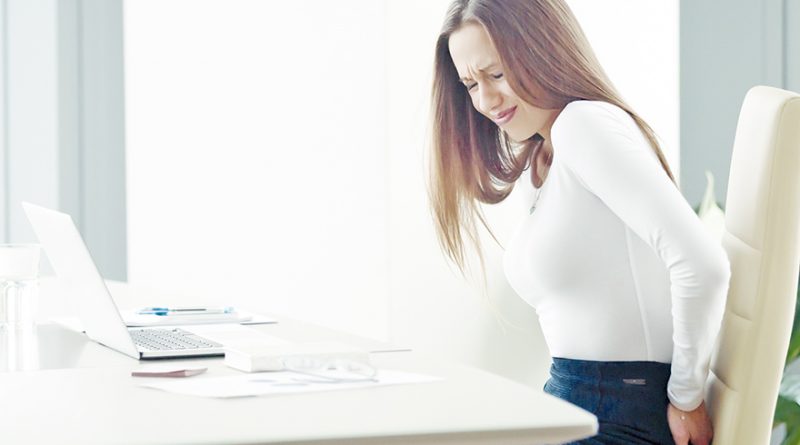Riesgos de estar sentado mucho tiempo / What are the risks of sitting too much?
Camina con tus colegas durante las reuniones en lugar de sentarte en una sala de conferencias.
Cuando te sientas, usas menos energía que cuando te pones de pie o te mueves. Las investigaciones han relacionado el hecho de estar sentado durante tiempos prolongados con una serie de problemas de salud. Estos incluyen la obesidad y un conjunto de enfermedades (aumento de la presión arterial, niveles altos de azúcar en sangre, exceso de grasa corporal alrededor de la cintura y niveles anormales de colesterol) que constituyen el síndrome metabólico.
Pasar demasiado tiempo sentado en general y permanecer sentado por períodos prolongados también parecen aumentar el riesgo de muerte por enfermedad cardiovascular y cáncer.
Estar sentado por largos períodos (por ejemplo, en un escritorio, detrás del volante o frente a una pantalla) puede ser perjudicial. En un análisis de 13 estudios sobre el tiempo que se permanece sentado y los niveles de actividad se encontró que quienes permanecieron sentados durante más de ocho horas por día sin actividad física tenían un riesgo de morir similar a los riesgos de morir causados por la obesidad y el tabaquismo.
Sin embargo, a diferencia de otros estudios, en este análisis de datos de más de 1 millón de personas se encontró que 60 a 75 minutos de actividad física moderadamente intensa por día contrarrestaban los efectos de estar sentado demasiado tiempo. En otro estudio se encontró que el tiempo que se permanece sentado contribuyó poco a la mortalidad de las personas que eran más activas.
Se necesitan más estudios sobre los efectos que permanecer sentado y realizar actividad física tienen en la salud. Sin embargo, parece claro que sentarse menos y moverse más en general contribuyen a una mejor salud. Puedes comenzar simplemente por pararte en lugar de sentarte cuando tengas la oportunidad o buscar formas de caminar mientras trabajas.
Por ejemplo:
Ponte de pie cada 30 minutos.
Párate mientras hablas por teléfono o miras televisión.
Si trabajas en un escritorio, prueba con un escritorio de pie o improvisa con una mesa alta o un mostrador.
El impacto del movimiento, incluso de baja intensidad, puede ser profundo. Para empezar, quemarás más calorías. Esto podría conducir a una pérdida de peso y un aumento de la energía. Además, la actividad física te ayuda a mantener el tono muscular, la capacidad de moverte y el bienestar mental, especialmente a medida que envejeces.
Edward R. Laskowski, M.D.
What are the risks of sitting too much?
Walk with your colleagues for meetings rather than sitting in a conference room
When you sit, you use less energy than you do when you stand or move. Research has linked sitting for long periods of time with a number of health concerns. They include obesity and a cluster of conditions — increased blood pressure, high blood sugar, excess body fat around the waist and abnormal cholesterol levels — that make up metabolic syndrome. Too much sitting overall and prolonged periods of sitting also seem to increase the risk of death from cardiovascular disease and cancer.
Any extended sitting — such as at a desk, behind a wheel or in front of a screen — can be harmful. An analysis of 13 studies of sitting time and activity levels found that those who sat for more than eight hours a day with no physical activity had a risk of dying similar to the risks of dying posed by obesity and smoking. However, unlike some other studies, this analysis of data from more than 1 million people found that 60 to 75 minutes of moderately intense physical activity a day countered the effects of too much sitting.
Another study found that sitting time contributed little to mortality for people who were most active.
More study is needed on the effects of sitting and physical activity on health. However, it seems clear that less sitting and more moving overall contribute to better health. You might start by simply standing rather than sitting when you have the chance or finding ways to walk while you work.
For example:
Take a break from sitting every 30 minutes.
Stand while talking on the phone or watching television.
If you work at a desk, try a standing desk — or improvise with a high table or counter.
The impact of movement — even leisurely movement — can be profound. For starters, you’ll burn more calories. This might lead to weight loss and increased energy. Also, physical activity helps maintain muscle tone, your ability to move and your mental well-being, especially as you age.
Edward R. Laskowski, M.D.


 (1) (2).jpg)

